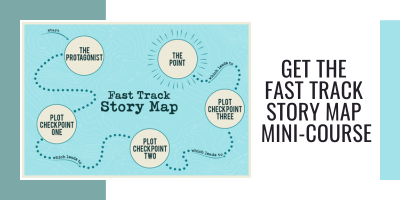
You've probably heard the phrase, "There are no small parts, only small players", the oft-quoted remark from the famous acting master, Konstantin Stanislavsky.
A skilled actor knows that their job is not to be the star but to fully explore their character's role in supporting the story, regardless of its size.
Take, for instance, a comedy co-star role that may comprise only one or two lines. The actor understands that their job, in this case, might be to set up the joke and make the lead look good. But they also know that just because they only have two lines to set up a joke doesn't mean that they can just show up to set and blow off the lines. They must understand how their set up lines support the story as a whole, not just the joke, so that the scene resonates and doesn't fall flat. This means digging into character work that the audience will never know about this two-line costar role.
By thinking like an actor, you can delve into each character's motivations, emotions, and backstory to make them three-dimensional and impactful, no matter how little they appear in the complete novel.
approach Book characters like an actor
Here's a basic acting exercise from Robert Cohen's classic book, Acting One, that you can apply to characters in your manuscript as well. It's called a GOTE Sheet, and it can be used to build overall character structure or used in individual scenes for each character.
GOTE is an acronym for the methodology, which explores a character's:
- Goals: What is the character's external goal (again, this can be overarching, or scene-specific). Consider their external goal (what they think will fix things) and their internal need (how they need to change in order to have their needs met)
- Obstacles: What is standing in their way? Consider external factors, like other people, commitments, and events, as well as internal factors, like self-doubt and insecurity, jealousy, denial, etc.
- Tactics: What is their strategy for getting what they want? For overcoming the obstacles?
- Expectations: What does the character expect if they get what they want/need? What will it mean for the character if they don’t get what they want/need? What is at stake?
Rather than reserving character exploration solely for your main characters, consider applying a GOTE sheet to all characters in every scene. Each character should have their own objectives, obstacles, tactics, and expectations, regardless of their size or significance, or if that information makes it into the finished narrative. Approaching all characters with equal attention and detail will create a richer and more immersive reading experience.
TIME IS MONEY
In film and TV, a disposable character is a waste of money. In your novel, you should consider the same for your characters.
Years ago I booked a small, one-day role on a TV show. While chatting with a fellow actor in the hair and makeup trailer, a production assistant knocked on the door and informed the other actor that her lines were now mine. It was an awkward moment, and I felt terrible as I said goodbye. But I understood. While production was legally obligated to pay the actor a cancellation fee, combining two roles into one made financial sense overall.
You can apply this mindset to the characters in your novel as well:
- How can you save "money" in your manuscript?
- Are any characters unnecessary?
- Can any roles be combined?
Consider how you can trim the metaphorical budget in your manuscript to ensure your characters are pulling their weight in the story.
Act it out
When in doubt, act it out!
- Use your voice to read your story aloud. This simple act changes the way your brain processes the information, helping highlight where to tighten, strengthen, and connect not just the dialogue, but all elements of your manuscript.
- Acting out a scene can also help in sorting out choreography or clarify issues with movement.
- Enlist friends to bring scenes to life, and be sure to gather their feedback. Did their characters feel complete, or did they sense any characters were unnecessary or unsure about their purpose? No actor wants to feel uncertain about their presence in a story, so don't let the characters in your novel feel that way either!
By adopting an actor's mindset when writing your novel, you can bring depth and authenticity to each character, regardless of their role in the story So, pull back the curtain and approach your novel like actors do on the stage or screen.

Love this content?
Subscribe to The Story Guide Dispatch for more!
Find Story Guide






















0 Comments